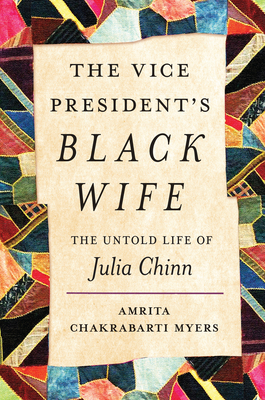Amrita Chakrabarti Myers

The Vice President's Black Wife: The Untold Life of Julia Chinn
Amrita Chakrabarti Myers
Award-winning historian Amrita Chakrabarti Myers has recovered the riveting, troubling, and complicated story of Julia Ann Chinn (ca. 1796–1833), the enslaved mixed-race wife of Richard Mentor Johnson, owner of Blue Spring Farm, veteran of the War of 1812, and US vice president under Martin Van Buren. Johnson never freed Chinn, but during his frequent absences from his estate, he delegated to her management of his property, including Choctaw Academy, a boarding school for Indigenous men and boys. This meant that Chinn, while enslaved, had substantial control over economic, social, financial, and personal affairs within the couple's world, including overseeing Blue Spring's enslaved labor force. Chinn's relationship with Johnson was unlikely a consensual one since she was never manumitted.
What makes Chinn's life exceptional is the power that Johnson invested in her, the opportunities the couple's relationship afforded her and her daughters, and their community's tacit acceptance of the family—up to a point. When the family left their farm, they faced steep pews at the rear of church, burial in separate graveyards, exclusion from town dances, and more. Outliving Chinn, Johnson was ruined politically by his relationship with her, and Myers compellingly demonstrates that it wasn't interracial sex that led to his downfall but his refusal to keep it—and Julia Chinn—behind closed doors.